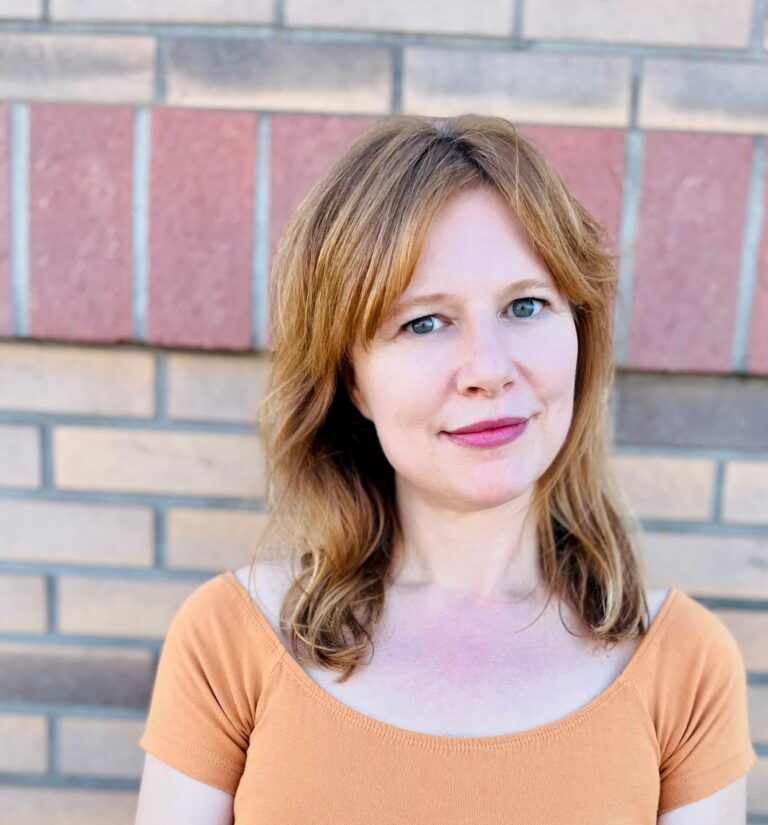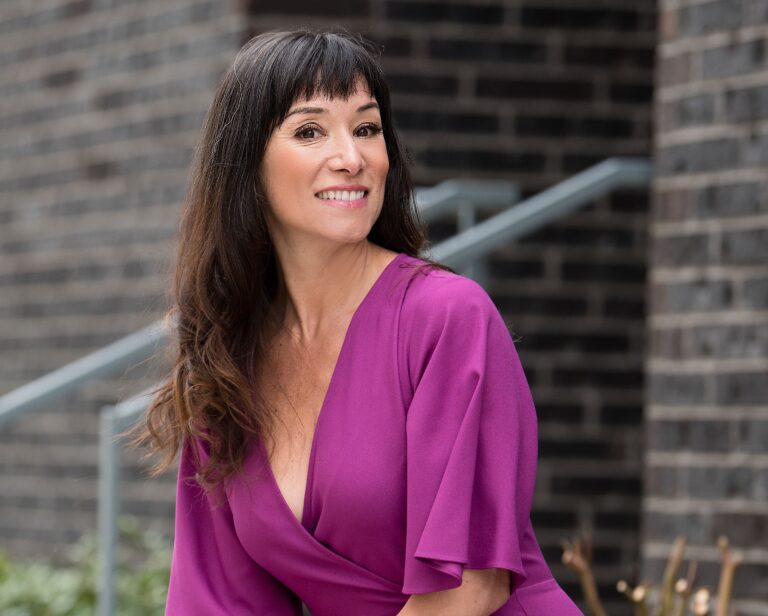Practical Techniques for Cultivating Self-Compassion as a Widow
Are you your own worst critic?
Well then it’s time to uncover a few practical techniques for cultivating self-compassion as a widow.
On this episode of the podcast, we talk about the importance of positive self-talk and how to break the cycle of negative thoughts – aka “stop being so mean to yourself!”
Learn about the power of recording your own voice, the benefits of self-awareness, and how mindfulness can help you acknowledge your suffering without judgment and support you in being kinder to yourself.
Self compassion is key in moving through widowhood with a little more grace and ease.
Who doesn’t want that?
Listen to the Full Episode
Links + Resources From This Episode
- Enneagram Test
- Kristin Neff – Self Compassion website
- Kristin Neff book – Fierce Self-Compassion: How Women Can Harness Kindness to Speak Up, Claim Their Power, and Thrive
- How to Have a Better Relationship with Grief
“Self compassion involves giving yourself the grace and space to learn how to do things you don’t know how to do. You’re not supposed to know how to do it. You need to give yourself time to figure it out.”
Episode Transcript
Melissa: Welcome back to the Widow Squad Podcast. I’m Melissa Pierce, and I’m here with Kim Murray and Jen Zwinck.
And today we want to talk a little bit about self compassion.
What does self-compassion as a widow mean to you, Kim? And why is it important that widows, especially now they’re heavy in the grief and loss space?
Why do you think that self compassion is so important?
Embracing Beginner’s Mind: Granting Yourself Grace to Learn and Grow
Kim: Well, it’s just important to be nice to yourself because you were dealt a really shitty hand of cards, right? That wasn’t something you were either expecting or obviously you didn’t want it. I mean, that wasn’t the life you thought you were going to lead. So nobody’s coming to save you. You have to learn how to save yourself when you’re a widow. You have to learn how to do ALL the things. And there may be people that are going to come around and help you occasionally, but realistically, you have to learn how to save yourself. So you need to be nicer to yourself.
I’m not one that was nice to myself in the beginning, so I’m speaking from experience that going through what you go through is so difficult and so hard and just overwhelming and confusing. And when you add not being nice to yourself on top of that, it just makes it worse. It’s not a good place to be. So I just think it’s a whole lot easier to navigate this new world that you’re living in when you’re nicer to yourself.
I always say no one knows how to be a widow until she is one, right? So you’re not supposed to know how to do this stuff. You’re not supposed to know how to do it. So self compassion involves giving yourself the grace and the space to learn how to do the things you don’t know how to do.
I assumed I was supposed to know how to be a widow. I was supposed to know how to do all of the things because, well, why wouldn’t I, right? Like, this is my new life now, so I must have to know how to do it. Well, I didn’t know how to do it. I didn’t know how to do a lot of things. I didn’t know how to feel. I didn’t know what to think. It’s important to recognize that you’re not going to know how to do a lot of those things. So self compassion is just giving yourself time to figure it out.
You’re not going to know how to grieve. You’re not going to know how to deal with impossible people; this all comes with practice. You’re not going to know how to do jobs you don’t want to do. That comes with practice.
We all start at the beginning. So just allow yourself to be a beginner. That self compassion involves allowing yourself to be a beginner and not know and figure it out as you go along, like we all do, but not judging yourself or being mean to yourself in the process. Like me, like, I judged myself and was mean to myself in the process. So if I could go back and do it all over again, I’d be like, oh, yeah, I’m not supposed to know how to do this.
Okay, now doesn’t that make you feel a little bit less anxious? I’m not supposed to know how to do it. Yeah, great! Now I can put on a different hat and be in a different headspace and be like, okay, if I’m not supposed to know how, I’ll learn, but I’ll give myself time to learn it. I don’t think we do that with ourselves, especially when you’re thrust into this life and you weren’t expecting it to happen that way.
You have to give yourself permission to be a beginner and not know what you’re doing. So a lot of times I’d have to practice this, right? So, again, not intuitively in the place to be nice to myself when I’m grieving, but once you’re reading and doing all the self help stuff and that all comes up to self compassion and being nice, and sometimes you have to practice it. And so you ask yourself, well, how can I do this or what can I do to be nicer to myself?
I’m going to tell you what I literally did. I’m not kidding. Like, I actually recorded my voice on my phone talking to myself as a friend would talk to me.
Melissa: Yes, that’s brilliant. Brilliant.
Kim: And you can have your friends leave you messages. However, I’m going to tell you right now, it is not the same as your own voice speaking to you. Oh, wow. Yeah. So I would actually cry listening to myself telling me that I’m doing a great job and you’re only one person and you’ve learned so much, and you’re taking on responsibilities you never knew you had to, and good job, and you’re amazing when you say it. You can’t write it down either. Okay, let me just be clear. This has to be your actual voice speaking to you so you can hear it. There’s something about that auditory way it enters your brain, right? You can write down that you think you’re amazing 25,000 times. You’re not necessarily going to believe that, but when you hear it in your own voice, it is game changing. Oh, yeah, it’s game changing. So I would have to do things like that, like use a voice recorder or and I journaled some things too, you know, just to kind of get out of my head and try to figure some things out in my head. But you’ve heard the old example, too, of, like, putting a rubber band on your wrist, and every time you think a negative thought it’s natural, whatever that’s called.
Melissa: A negative thing. I don’t know, some psychological thing.
Kim: But yeah, reinforcement things. So those are just tricks. I mean, you’re just tricking your brain. I can tell you to be nice to yourself and that you should. It’s the right thing to do, and I know that from experience, but it’s not easy to do it, and it’s not easy to believe that you deserve it.
So these are just some ways that you have to trick your brain to start practicing that. It’s a practice, a lifelong practice. It’s not like you’re going to record a few voice recordings and be like, I love myself and everything I do is great, and let’s move on. That’s not how it works. It’s just a practice. So those are some of the things that I had to do to trick myself. I’m still learning. I am actually still learning how to be nicer to myself.
Melissa: It’s lifelong. I think before Dave died, I didn’t even know how mean I was to myself. Like, you don’t even realize it.
Kim: You don’t.
Melissa: It’s just spinning around. There is this loop that’s just going on and on. Yeah, I’m sorry, I feel like I interrupted.
Kim: No, that was a good point, though. The point about being a beginner and not knowing how to be a widow until you are one speaks to that because we are very hard on ourselves and very mean to ourselves that for some reason we’re supposed to know how to do something we’ve never done before.
Would you expect a child to know how to do something he or she has never done before? The other thing you can think about in terms of, like, the way you talk to yourself, would you speak to a child that way who was learning something new? You would never talk to a child the way you talk to yourself. So again, you have to ask yourself, why is it okay that I do this to me? I wouldn’t do it to anybody else. Why am I doing it to me? So being a beginner and realizing that it’s okay to not know is huge. That’s kind of where I was and am with self compassion. It’s a lifelong process. Still learning.
Melissa: Yeah. I like what you said about being a baby or a toddler, like treating yourself like little Kim, little Jen, little Melissa. You would not say the things that are going on in your mind to that little girl. You would not.
Kim: That’s exactly right. Now, I have this picture of myself that’s in 1976, so I was six years old. And I have kept that on my desk at times to look at that picture and look at little Kim and think to myself, like, I wouldn’t talk to little Kim this way. I would not do this to her. And so now as an adult, I’m protecting my inner child, too. As you’re practicing self compassion, you’re protecting an inner child, but you could literally take a picture of yourself and put it on your desk from when you were a kid or a picture when you were younger and remember to not talk to yourself in a mean way, because we do it, so subconsciously, we do it. You don’t even know what’s happening, so just don’t. I don’t know how to say to stop, but trying to recognize some of those keywords or you shouldn’t, or you always and never and all those keywords you say to yourself all the time, it’s not easy to do, but I recommend trying to hear those words a little bit more in your brain.
Melissa: Just recognizing, oh, this loop is happening. This is happening all the time. Even just stopping yourself, maybe that little rubber band just like, oh, I’m going to stop myself. What am I saying to myself right now? Is it kind or is it not so kind? That’s interesting. Why am I either doing either or?
I didn’t realize it was a lifelong habit until I got into grief counseling and was actually verbalizing some of the things that I was thinking, because I was in a trusted space, I wouldn’t just again, talk to my dentist or my doctor, hey, I’m thinking this thing and blah, blah, blah, because I’m judging myself. But I felt that was a safe space because, again, I’ve never been in grief counseling before, but I was moving through a big thing, and I really felt like I needed help making sense of what was going on. And she just held a mirror up, basically for me, and just said, realize that you’re not being really kind to yourself. You’re actually moving through the biggest thing in your entire life. You are moving your kids through it. You’re doing a phenomenal job. And it was nice to have somebody say that back to me, a professional, because not that I was giving her money, but she’s a professional. She knows she’s a grief counselor. So that was kind of what I needed to kind of help me realize that I need to really recognize what’s going on in my brain, maybe create some new neural pathways that are a little kinder.
Kim: Yeah, we totally can. We can do that. We can change those. But just having that recognition or understanding that and seeing it like she was able to tell you, oh, yeah, I’m doing a phenomenal job. Wow. I have done this and this, and my kids have done this, and I’ve gotten them here and done that with them and holy crap, yeah, I am doing a phenomenal job.
Melissa: Yeah. I think she even ran me through kind of that exercise list or tell me all the things that you have done this past year, and I’m listing them off, and as I’m verbalizing them, as I’m saying them out loud in the world and my ears are hearing it, I’m like, damn, she’s pretty incredible. Oh, that’s me, that’s me. Wow. I didn’t give myself a ton of credit until I started saying things out loud. I’ve never done what you did, and that’s really intriguing to me as far as recording your voice, I’m going to.
Kim: Do that, try it and come back and report back to me. Because I was in a group, in a Facebook group where it was just like a six week deal where we were doing some writing and this leader, this person who organized it, I didn’t come up with that, obviously, but they had given that example to do and of course, I think everything’s stupid before I do it. It’s not going to work. It’s not going to work. It’s stupid, right? Like, it’s not going to work. So I was like, whatever. But I wrote out a script for myself so I could record the script and I did it. So I cried. That’s what I said before. I was like I literally cried when I read this. And I was like, oh, my God, this is amazing. No, he’s brilliant. This dude was brilliant. This really does work. So try it. Let’s report back.
Melissa: I’m going to. We should run Widow Squad folks through that.
Kim: Let’s do that. Let’s do that.
Melissa: Not a bad idea. Also, part of self compassion, being kind to myself, acknowledging where I’m not being so kind to myself. Doing a lot of investigation about how Melissa works and that included doing personality tests, taking like the Enneagram is huge. Myers Briggs, I did for business. I took that twice because it was part of the company that I worked for. They ran everybody through that, and that was interesting. But I thought the most interesting one was the Enneagram because I understand kind of how I tick, what my strengths are and what some of my challenges are. So now I recognize those challenges and I can be a little kinder to myself. This is just how I’m wired. This is how I came out of the shoes. So that was really helpful.
Kim: Yeah, definitely. Take an enneagram test if you can. If you don’t know what that is, take that test. Because I’m an Enneagram Six and fear rules our lives. So for the longest time, the reason I was so mean to myself was I didn’t know why I was afraid of everything all the time, and thinking I shouldn’t be afraid of everything all the time, but I was. That was a legit fear. So if you read anything at all about Enneagram Six, this is why. So to your point, excellent point. Definitely take the test. You understand it’s how you’re wired. So now I am not as hard on myself about being afraid because I know I can get through it. I always get through it. But it is part of how I’m wired and it’s like, okay, so someone gave me permission, the Enneagram gave me permission to be afraid and to be okay with it because that’s what I do. That’s what I do best. I’m going to tell you right now, everybody’s safe and they’re always safe. And there were no broken bones in my house. No kids were ever in the hospital. There was no strep throat, ear infections. I’m telling you guys, like my kids were safe all the time.
Melissa: They were in a bubble.
Kim: Yeah, they were in a bubble because of who you are. They were in my Enneagram Six bubble. And I protected them and I kept them safe and I kept fear at bay. But that’s a good point is knowing your personality and understanding yourself better.
Melissa: Self compassion. Be super curious about how you move about in the world and gosh there’s free tests all over the internet. I mean, we could probably put some in the listener notes, some trusted sites, or where we’ve all taken the enneagram just so the three of us could know each other and how each other ticks is really nice, but I think it’s just being really curious about the thoughts that are going on your head and how you’re wired, how you showed up in this world the minute you were born. You’ll have some AHA moments, you really.
Kim: It will give you a better understanding of yourself. That’s how you’re going to respond because that’s you. Well, same thing with astrology and numerology and all that stuff. You can go down major rabbit holes with that stuff. But it’s also the same principle, knowing who you are and what you’re about and how you react to situations. So I said before, I’m a fire sign and my children are both fire signs. So I have three actually, now that I’m married, he’s a fire sign too. So there were four fire signs right in my life but taking time out of the equation, even just with raising my children. I had two Aries kids. I’m a Sagittarius fire sign. But that is a lot of combustible energy when you’re trying to be the right one or the top dog or whatever you want to call it. So even knowing parts of astrology or whether that appeals to you or not, all of those things combine to give you that composite picture of yourself. So knowing those two it’s like, oh yeah, okay, I’m quick to anger.
Recognizing and Changing Negative Self-Talk Patterns
Melissa: It’s kind of a nice release.
Jen, what does self compassion mean to you? Why is it important for widows to understand this concept?
Jen: We hear this all the time in our Widow Squad meetings and we hear other widows who are so hard on themselves and we can see it from the outside and they just don’t see what they are saying to themselves. Yeah, truth, it’s so much easier to see it from the outside. And you’re like, are you talking to yourself this way? Why are you treating yourself this way?
We think we’re stupid for reacting a certain way to something, or we shame ourselves for feeling a certain way. We get angry for showing too much emotion. We get frustrated for not knowing what to do. Even though Kim, like you said, it’s like, how are you supposed to know what to do in this situation? We have all of these expectations for ourselves. We get aggravated with ourselves for not grieving faster or feeling better by now or anything like that.
And then we berate ourselves for not knowing how to do the work of two parents. That’s another one. We think we should be mom and dad for the kids. And we get aggravated when we don’t know how to do both jobs. How the hell are we supposed to know how to do that? So these are some of the common ones, but there are so many more. I mean, we could go on and on. We just put a lot of pressure on ourselves to have all of the answers and not just have all the answers, but to have them right away, immediately. Like, we want to know, we want the answer and do them perfectly. Perfectly perfect. But you lose your spouse and you’re thrown into this completely different life. And the reality is that you’re on your own. This is a life that you have never imagined that you would ever be in. And then it happens. And you’re a solo parent, you’re a homeowner, you’re sometimes working a full time job at the same time. And it’s this brutal awakening of being stretched to maximum capacity in a million different directions and having to navigate all of those unfamiliar feelings and emotions that are running through your body and your brain. So it’s a rocky place to be. And for some reason, we still put that pressure on ourselves.
Melissa: Oh my gosh, the shame, the guilt, the judging, all that stuff. We were so hard on ourselves. Yeah.
Jen: So we have all these questions. Maybe you have to move, maybe it’s a financial situation and you think, okay, maybe I have to downsize, or even just grieving. Like, why can’t I stop crying? Why am I reacting this way? And how can I make this stop? Am I ever going to feel happy again? We have all this negative self talk, right? Like, I can’t do this on my own. I can’t do this anymore. I can’t do this without him. And we’re super critical.
I know I was just judging. Just judging myself as a parent, that was my hardest struggle. I think that having compassion for yourself and giving yourself not an out, but being more open to how you’re feeling and here’s the thing about being a widow, okay? There’s no perfect way to do it. There’s no right way to do it. I heard this quote from Kristen Neff. Have you guys heard of Kristen? She is pretty much the queen of self compassion, and she’s written a bunch of books about it. You can look her up on YouTube and things, but one of her books is called Fierce Self-Compassion: How Women Can Harness Kindness to Speak Up, Claim Their Power, and Thrive. And so Kristen says here’s a quote from the book:
“Whenever something goes wrong in my life, I silently repeat the following phrases. This is a moment of suffering. Suffering is part of life. May I be kind to myself at this moment? May I give myself the compassion I need.”
And the question is, how do we give ourselves that compassion? How can we be kinder to ourselves? Like, what can we do? Kim, I love your idea of saying this to yourself. Well, put that quote in your voice recorder, the quote into your voice recorder and tell yourself, may I give myself the compassion I need. And you can reword it, rephrase it however you want to, in your own words and in your own voice. But just telling yourself this is suffering. Suffering is a part of life. May I be kind to myself at this moment?
I love that idea that you mentioned, but Kristen talks about these three components to self compassion, and the first one is mindfulness. Of course, mindfulness is so helpful because when we’re mindful, it helps us acknowledge what we’re doing in the moment. And mindfulness helps us acknowledge we are actually suffering due to loss without adding judgment. We are not broken because we are suffering. We think that a lot about ourselves when we’re going through this, we think that we’re broken. Mindfulness helps us to sit in those feelings and sit with the hurt and to sit with the sorrow instead of pushing that away and ignoring it. It’s saying, yes, anxiety, I see you. Yes, hurt, I see you. I know you’re right here with me. I’m not going to try to fix you. Let’s just sit together and feel this out.
So the second thing that Kristen says is the second one is common humanity. And common humanity reminds us that we are not only human, but that also the people around us are just like us. And they are suffering, too, in their own way, in their own world. But everybody is fighting their own demons. This pain that we’re feeling, unfortunately, is also a bond to other people. It’s a bond with the rest of humanity. And we are not the only ones that are experiencing what we are experiencing. I know that sounds kind of pressing in a way. Everybody’s got their own shit, right? Everybody. They do. They do. And so life is going to catch up with you eventually, right? It does. And that’s not a really helpful thing to say, but it is because it makes you feel less alone. Well, and if you can show self compassion to those people, then you can show self compassion to yourself. Right. So you know how to be empathetic to someone, then you can turn that empathy back around on yourself too. It makes you a more compassionate person when you think about it that way. And so it changes your perspective of it. So you can turn that around to yourself.
Melissa: So Jen, was there a point in your widowhood journey? I hate the journey.
Kim: It’s a journey, though.
Melissa: Yeah, but was there some point where you were aware of your lack of compassion for yourself or something that you did just to turn that around?
Jen: I wouldn’t say there was any specific moment where I said I really need to be nicer to myself. But I think it was just after questioning and doubting myself as a parent, that was just my major struggle, really. Self doubt was my parenting ability. And I just kept saying there is no way in hell I can do this on my own. Even though I was doing it every day and I was living it every day and I was making it every day, it was not anything that I was looking back on as I was progressing through solo parenting and thinking, hey, I am doing it. I was not nice to myself. I just wasn’t.
Kim: Do you think that the guilt and the shame and the judgment is really more of a form of control? Because those are emotions and feelings that we can control, we can make them come and go. The rest of the feelings we don’t know how to handle. We don’t know how to feel the feelings. And so sometimes I think that judgment is just us trying to control situations we have literally no control over. But that makes sense to us. The judgment makes sense, the guilt makes sense. So we’re trying to make sense of the senseless, but making it harder on ourselves in the process. I know for myself, I’m a control freak, so the more I can control, the better I feel. Although I don’t control crap. When you live in that world, it’s very difficult.
Jen: Such a great point. That is such a great point. Because I am judging myself and I have control over that. I have control over the things that I am saying. That is a really good way to look at it.
Melissa: Get a room full of widows together. All of them have control issues.
Kim: They all have control issues. Again, making sense of the senseless. You cannot make sense of anything that happened to you because there’s no way to do that. But damn, we try, don’t we? We really try. And that is just that judgment comes in full force because we can make sense of that, but don’t do it because it’s not good. Yeah. It’s not recommended.
Melissa: Just the fact that you said it and people are listening. They can recognize, oh, gosh, I do that. I try to control the chaos. It’s natural to try to do that. But the judgment, the fear, the anger, the guilt, all that stuff, we feel like, oh, I can deal with that. This other stuff’s a little harder, like trying to be compassionate to ourselves and recognize how we talk to ourselves. And I go back to the toddler thing where little Melissa is learning how to tie her shoe. Well, big Melissa is not going to tell her, you could have done that a little better. Why didn’t you do that quicker?
Kim: Right?
Melissa: Oh, my gosh. When you kind of break it down, it’s ridiculous. It is really ridiculous. But we’re doing that to ourselves a lot.
Kim: We have to understand the negativity bias that we live with as humans. Also, we are more biased to the negative. So we talk to ourselves more negatively than we would ever do it positively. But when those kinds of tapes were playing before you were widowed, you were nasty to yourself or I was nasty to myself or whatever. This is nothing new. The grief and the widowhood exacerbates it by about 1000. But still, those tapes have been playing in your brain for a very long time. So to change those tapes is not an easy thing to do. That’s why you have to be ultra aware. And like you were saying, Melissa, self aware. That’s a great first step is just becoming a teensy bit more self aware and then allowing that all to be part of what you said, Jen, your humanity, just the fact that you’re a human being having a human experience. That’s key to cultivating self-compassion as a widow.
Melissa: I encourage everybody to record themselves. There’s apps on every phone on how to record yourself. Right?
Kim: It just comes on your phone. It’s just there. I think this app on my phone, it’s easy. Voice recording.
Melissa: That’d be kind of a cool experiment for folks to try. I’m definitely going to do that.
Oh, good stuff. Self compassion. Let’s do more of that.
Kim: Let’s do more.







